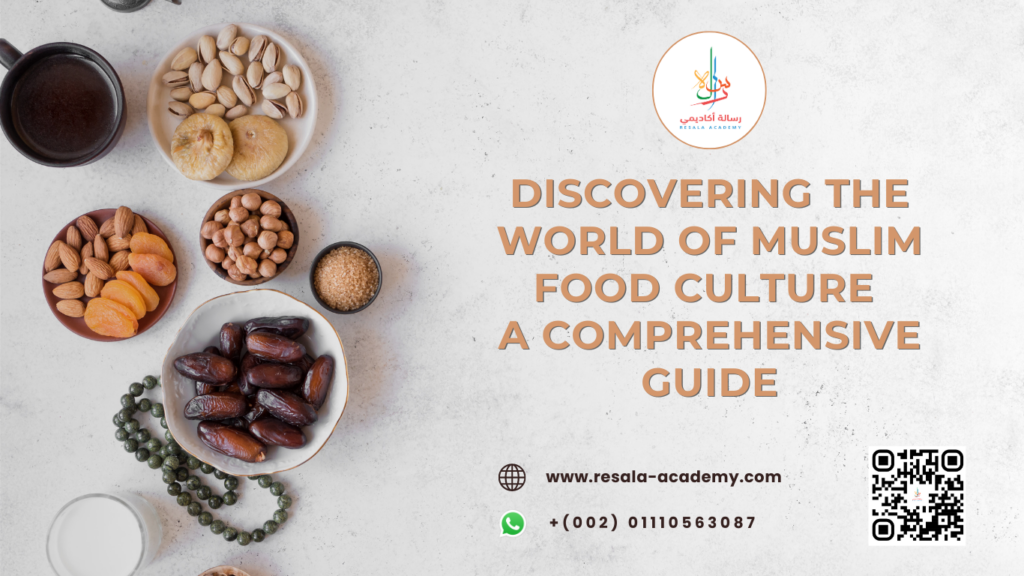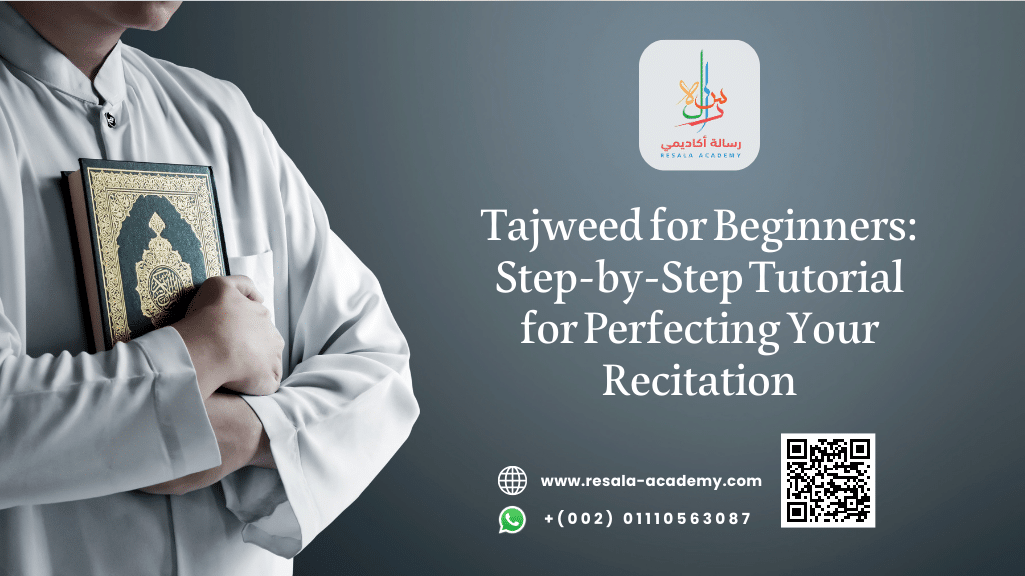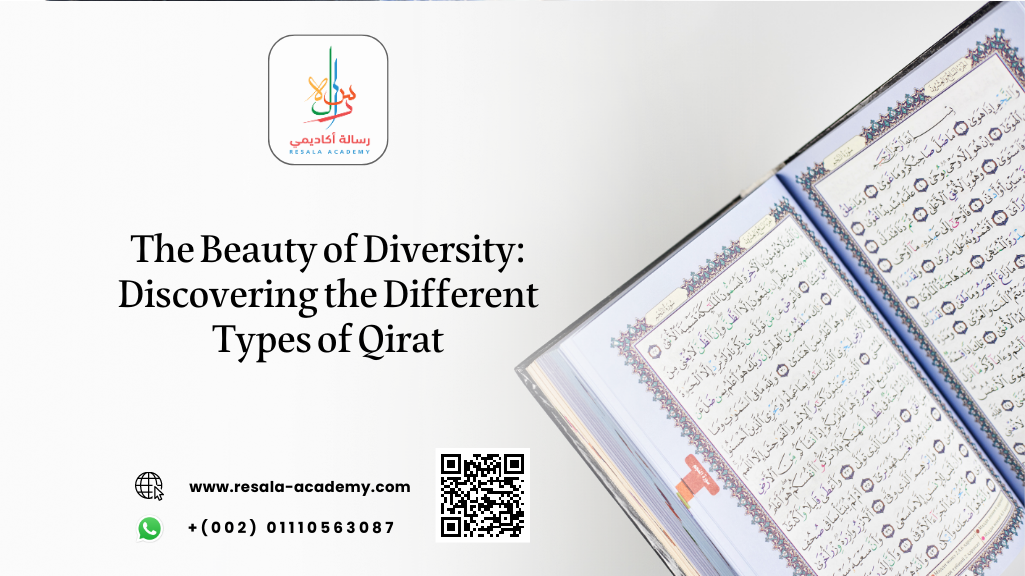Table of Contents
Discovering the World of Muslim Food Culture - A Comprehensive Guide
Are you a passionate Muslim food enthusiast or aspiring chef who is eager to explore the world of Muslim-inspired culinary delights? Then this comprehensive guide to discovering the wonders of global Muslim food culture is perfect for you! From mouth-watering traditional dishes from Turkey and Morocco; to fusion, cuisines weaved together by Middle Eastern and North African heritage – prepare yourself for an unforgettable tour around the many flavors, textures, colors, and aromas that make up Muslim cuisine. Whether you’re planning a trip abroad or just want to get creative in your kitchen at home – join us as we discover some classic recipes and uncover exciting new possibilities within the boundaries of Islamic gastronomy.
A Brief Overview of Islamic History and the Roots of Muslim Cuisine
The roots of Muslim cuisine can be traced back to the very beginnings of Islamic civilization. During the life of the Prophet Muhammad, food was a simple affair, with minimal spices or ingredients and little in terms of variety or complexity. This austerity changed with the expansion of Islam and its increasing influence on other cultures. As Muslims spread across lands, they took their culinary customs with them and interacted with other cuisines. These interactions resulted in a wide array of delicious dishes that have become staples in many parts of the world today.
Many elements from Middle Eastern cooking are found throughout Muslim cuisine thanks to the early Arab traders who brought these recipes to various countries during their travels. Dishes like hummus, falafel, shawarma, and tabbouleh are all deeply rooted in Middle Eastern cuisine. As Islam spread, it also brought with it a variety of regional specialties such as kebabs and curries from India, Mughlai dishes from Afghanistan and Pakistan, North African couscous dishes, Turkish stuffed vegetables, and Persian rice recipes. The diversity of ingredients used in Muslim cooking is impressive: spices like cinnamon, cumin, cardamom, and coriander; nuts like pistachios and almonds; fruits like dates; grains such as bulgur wheat or quinoa; legumes including chickpeas and lentils; vegetables ranging from eggplant to cauliflower. These ingredients form the basis for many traditional Islamic dishes.
Muslim cuisine also includes dishes influenced by the numerous cultures that Islam interacted with during its expansion. In Spain and Portugal, for example, Muslim cooks combined their knowledge of spices and ingredients to develop a style of cooking now known as Moorish or Andalusian cuisine. This regional specialty uses saffron, rosewater, nuts, olives, and other flavors from the Mediterranean region in delicious dishes such as paella and gazpacho. Today, Muslim communities around the world continue to share their culinary traditions with others who are interested in exploring this rich food culture.
From Morocco to Malaysia to India, Muslim cuisine is both diverse and full of flavor – a testament to the vast reach of Islamic culture. Whether you’re looking to sample Palestinian kibbeh or Afghani korma, explore the delicious world of Muslim cuisine and experience the flavors of a rich culinary tradition. From savory stews to juicy kebabs and fragrant rice dishes, there’s something for everyone to enjoy in this vibrant heritage. So grab your fork and knife, pull up a seat at the table, and dive into an exciting journey through the history and traditions of Muslim food! Bon appetit!
Identifying how religion, politics, and economics have shaped modern-day Muslim food culture
The Muslim culture has been greatly shaped by religion, politics, and economics. Over the years, different Islamic countries have developed a wide variety of food traditions and cuisines. Religious laws determine what types of foods can be consumed, while political events play a role in how those food laws are interpreted and enforced. Economically, Muslims have had to be quite resourceful in creating dishes from limited ingredients and resources.
Religious laws, known as halal and haram, dictate what Muslims can and cannot eat. Halal foods are considered permissible under Islamic law while haram foods are forbidden. The Koran specifically outlines certain restrictions including the prohibition of pork products and alcohol consumption. Other dietary requirements include proper humane treatment of animals and the avoidance of carrion and products made from blood.
Politically, cultural values have shaped the way Muslims prepare and consume food. In some parts of the Muslim world, food is prepared to meet certain social expectations or standards. For example, in Middle Eastern countries, meals are often shared communally as a sign of hospitality and respect.
Economically, Muslim cuisines have been shaped by the availability of ingredients and resources. In regions with limited resources, traditional Muslim dishes often incorporate grains and legumes as their main sources of protein. Meals may also be spiced with herbs or spices to make them more flavorful. Additionally, Islamic countries may have to rely on imports for certain ingredients, leading to an emphasis on the use of locally grown products.
By understanding and respecting these restrictions placed by religion, politics, and economics, we can better appreciate the unique flavors and dishes that make up the Muslim food culture in its many forms. Whether it’s a traditional feast or a modern fusion dish, each meal is an exploration into the colorful world of Muslim food culture.
Exploring Common Ingredients in Different Regions of the Muslim World
The Muslim world is home to a vast array of cultures, cuisines, and traditions. Each region has its own unique set of ingredients that are used in various dishes. Let’s take a closer look at some of the most commonly found ingredients across the Muslim world:
- Meat – Lamb, beef, mutton, chicken, and turkey are all commonly used in Muslim regions. They often feature prominently in dishes like kebabs, stews, curries, and tajines.
- Rice – Rice is a staple ingredient across the Middle East and Central Asia. It is served with almost every meal and can be cooked in many different ways to create a variety of dishes.
- Herbs and Spices – Commonly used herbs and spices in Muslim cuisine include cumin, coriander, turmeric, cardamom, cinnamon, black pepper, cloves, and nutmeg. They are often combined to create flavourful spice mixes like garam masala and baharat which are used to season dishes.
- Legumes – Lentils, chickpeas, and beans are all important sources of protein and fiber in Muslim cuisine. They can be cooked into hearty stews or soups or mashed into falafel patties for a delicious snack.
- Nuts and Seeds – A variety of nuts and seeds are used to add texture, flavor, and crunch to recipes. Popular varieties include sesame, pistachio, hazelnuts, almonds, and pumpkin seeds.
- Fruits – Fruits like dates, apricots, figs, and pomegranates are widely available across the Muslim world and can be used both fresh and dried in a variety of dishes.
- Dairy Products – Milk, yogurt, cheese, and cream are all used to add richness and flavor to recipes. They can be used to create creamy sauces or thicken soups and stews.
- Vegetables – Vegetables play an important role in many dishes from the Middle East and North Africa, such as eggplant, tomatoes, onions, peppers, potatoes, and garlic. They are often used to create flavorful soups, stews, and tajines.
- Grains – Grains like bulgur, wheat berries, and couscous are staples in many Middle Eastern dishes. They can be cooked as pilafs or served alongside roasted meats and vegetables to add texture and heartiness to the meal.
- Olives and Olive Oil – Olives are widely used in Middle Eastern cuisine and can be added to salads, stews, or served as a side dish. Olive oil is also an essential ingredient for cooking, as it adds flavor and richness to many dishes.
These are just some of the common ingredients found throughout the Muslim world. There are, of course, many more unique and flavourful ingredients that can be used to create delicious dishes. Enjoy exploring the diverse flavors of Muslim cuisine!
Examining the Cultural Significance of Eating Together in Islam
Eating together as a communal activity has been an integral part of Muslim culture for centuries. The Islamic tradition of eating at home and sharing meals with others is seen as an important way to build relationships and strengthen ties between family members, friends, and even strangers. It provides a sense of belonging, connection, and unity that can help bring people together.
Food also plays an important role in Islamic spirituality, as it is often seen as a form of nourishment for the soul. Muslims believe that when we eat together and share our food with others, we are spiritually connecting ourselves to God and showing gratitude for His blessings. Eating together can be a way to express love, compassion, and hospitality.
The Prophet (ﷺ) said, “Whoever believes in Allah and the Last Day, should not hurt his neighbor and whoever believes in Allah and the Last Day, should serve his guest generously and whoever believes in Allah and the Last Day, should speak what is good or keep silent.” showing how food can help build relationships between people.
Eating together is also seen as a way to foster mutual understanding and respect among different communities. By breaking bread together and engaging in dialogue, people can come to better understand one another’s cultures and beliefs. In this way, eating together can be seen as a form of peace-making and bridge-building between different faiths or ideologies.
In conclusion, eating together has long been an integral part of Muslim culture, providing nourishment for both the body and soul. It is a way to build relationships, foster understanding and respect, and show appreciation for God’s blessings. Eating together is an important part of the Islamic tradition that should be cherished.
Understanding Dietary Laws Observed by Muslims
In Islam, the primary concern with dietary laws is to maintain cleanliness. Islamic scripture prohibits Muslims from eating certain kinds of meat, such as pork, and any animal that has not been slaughtered according to Islamic law. In addition, certain parts of animals (e.g., blood) are considered forbidden by most Muslim communities. Additionally, consuming alcohol is prohibited in Islam.
In terms of daily life, Muslims are typically expected to take certain steps to observe these dietary laws. For instance, most food that is served at an Islamic table must be halal (i.e., permissible according to Islamic law). This includes avoiding contact with pork and other forbidden items when handling or preparing food for others. Additionally, Muslims may avoid eating food with their left hand and often perform a ritual washing of hands before meals.
In conclusion, understanding and adhering to the dietary laws set forth by Islam is important for Muslims for them to not only remain true to their faith but also practice it in a way that respects the beliefs of others. It is also important for those who are not familiar with these laws to be aware of them to demonstrate respect and understanding for their Muslim peers. By doing so, they can create a more harmonious and tolerant environment.
Reflection on the global impact of Muslim food culture with conclusions about cultural exchange, appreciation for diverse cuisine, and understanding
The global impact of Muslim food culture is far-reaching. From the introduction and adoption of many iconic dishes around the world to the vibrant street foods that have become a staple in cities across the globe, it’s clear that Muslim cuisine has had an undeniable influence on our collective culinary experience. By exploring the history and evolution of Muslim food, we gain a better understanding and appreciation for the diverse cuisines that make up our global food culture. Muslim cuisine did not become prominent outside of Islamic countries until the 16th century when merchants began trading goods along the Silk Road. This period saw an influx of Muslim traders and travelers into Europe, Asia, and Africa, bringing with them their unique culinary traditions and recipes. The ingredients, flavors, and cooking techniques of the Islamic world were adopted around the globe to create dishes that have become beloved staples in many countries today. What’s more, Muslim food culture is not only an expression of shared culinary identity but also a reflection of cultural exchange between different people and societies.
From the biryani rice dishes of India to the couscous of North Africa, Muslim food culture is a testament to how different cultures have shared and adapted their culinary techniques over time. At its core, exploring the global impact of Muslim food culture should lead to greater understanding, appreciation, and respect for diverse cuisines around the world. We can gain a deeper understanding of our shared culinary heritage and use this knowledge to foster cultural exchange and appreciation. Through greater dialogue, education, and exchange of traditional recipes, we can further celebrate the diversity that exists within Muslim food culture today. With this in mind, it’s clear that exploring the global impact of Muslim food culture is a valuable experience that should be shared by all. The global impact of Muslim food culture is immense, and its role in creating the diverse culinary tapestry we enjoy today should not be underestimated. It has served as an example of cultural exchange and appreciation for centuries, and this understanding can still be used to bridge gaps between different cultures and foster a greater understanding of our shared culinary heritage.
Reflections on the global impact of Muslim food culture suggest that we can learn from one another and celebrate diverse cuisines for their authentic flavors and techniques. Understanding this history can provide insight into how cultures have come together to create beloved dishes around the globe, as well as how we can use food to create a more inclusive society. With this in mind, exploring the global impact of Muslim food culture can serve as an important reminder that our differences are to be celebrated and cherished, not feared or ignored. The history of Muslim cuisine has been shaped by centuries of cultural exchange and appreciation, and it is up to all of us to continue this tradition of understanding. By learning more about the global impact of Muslim food culture, we can gain insight into our shared culinary heritage and use this knowledge to create a better future for all.
Resala Academy for Online Islamic Classes
Resala Academy is an online Islamic academy offering courses and lectures to those seeking a deeper understanding of their faith. Our courses cover a range of topics, from the fundamentals of Islam to more complex issues such as Islamic jurisprudence (fiqh), theology, and (‘aqidah). Additionally, our courses are designed to be accessible for both beginner and advanced students of the faith.
At Resala Academy we also provide a variety of learning resources to help you understand your Islamic studies better. You can access audio lectures, video tutorials, virtual classrooms, and online study groups. Through these tools, you can ask questions and discuss topics with fellow students and faculty. This allows us to provide a comprehensive learning experience tailored to your individual needs.
At Resala Academy, we also offer online mentoring programs with experienced scholars who can help you go deeper into your studies of Islam. Through personalized advice and guidance, our mentors are here to help make sure that you are getting the best out of your Islamic studies.
At Resala Academy, our goal is to make learning about Islam easier and more accessible for everyone. We are constantly striving to improve our courses and provide the best learning experience possible. So come join us today and let us help you explore the depths of your faith!
To get started at Resala Academy, simply sign up for one of our courses or visit us online at resale-academy.com. With Resala Academy, you can access the world’s best Islamic education without ever leaving your home!
We look forward to seeing you soon and helping you on your journey toward a deeper understanding of Islam.
FAQ
Q: What topics does Resala Academy cover?
A: Resala Academy offers courses and lectures on a range of topics related to Islamic studies, including the fundamentals of Islam, Islamic jurisprudence (fiqh), theology (‘aqidah), and spirituality (tazkiyah).
Q: Are there any learning resources available?
A: Yes, we offer a variety of learning resources to help you understand your Islamic studies better. This includes audio lectures, video tutorials, virtual classrooms, and online study groups.
Q: Does Resala Academy offer mentoring programs?
A: Yes, we have experienced scholars who can provide personalized guidance and advice to help you go deeper into your studies of Islam.
Q: How do I get started?
A: Simply sign up for one of our courses or visit us online at resale-academy.com to get started! We look forward to helping you explore your faith and achieve a deeper understanding of Islamic studies.
Q: Does Resala Academy provide access to the world’s best Islamic education?
A: Yes, with Resala Academy you can access the world’s best Islamic education without ever leaving your home! With our courses and learning resources, you can gain a comprehensive understanding of your faith that is tailored to your individual needs.
Conclusion
Muslim food culture has something special to offer the world. Every time we bite into a delicious dish, spices jump out of their containers, vibrant flavors excite our taste buds and sweetness sweetens our hearts. It is a never-ending exploration to discover unknown recipes and unheard stories. Through this journey, we developed an immense appreciation for Halal cuisine, its sumptuousness, authentic ingredients, and traditional dishes. We now have a better understanding of why Muslims make up about one-quarter of the global population – it’s because of their unrivaled passion for food!
Discovering this exceptional Muslim culinary heritage can open so many doors for people who are looking to expand their palate or gain cultural competence. What’s more exciting is that Learn with Resala Academy provides access to some amazing online Islamic classes where you can further your knowledge of both foundational and creative Muslim food cultures! Don’t miss out on the opportunity to learn more about this Mediterranean cuisine through these courses with experts in the field. Join us today and start discovering the world of Muslim food culture!




